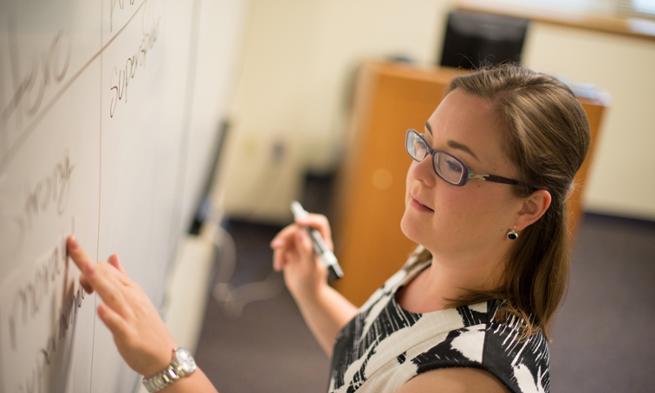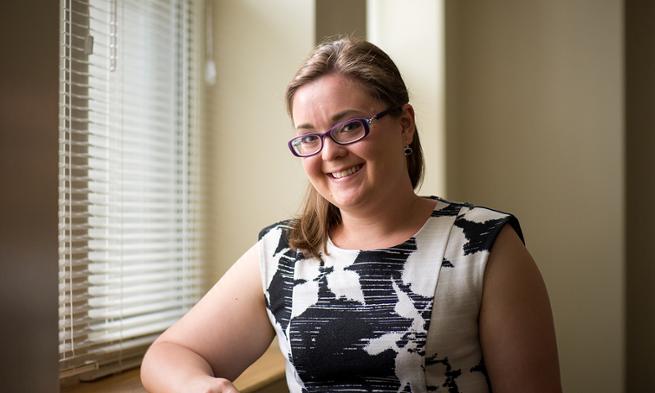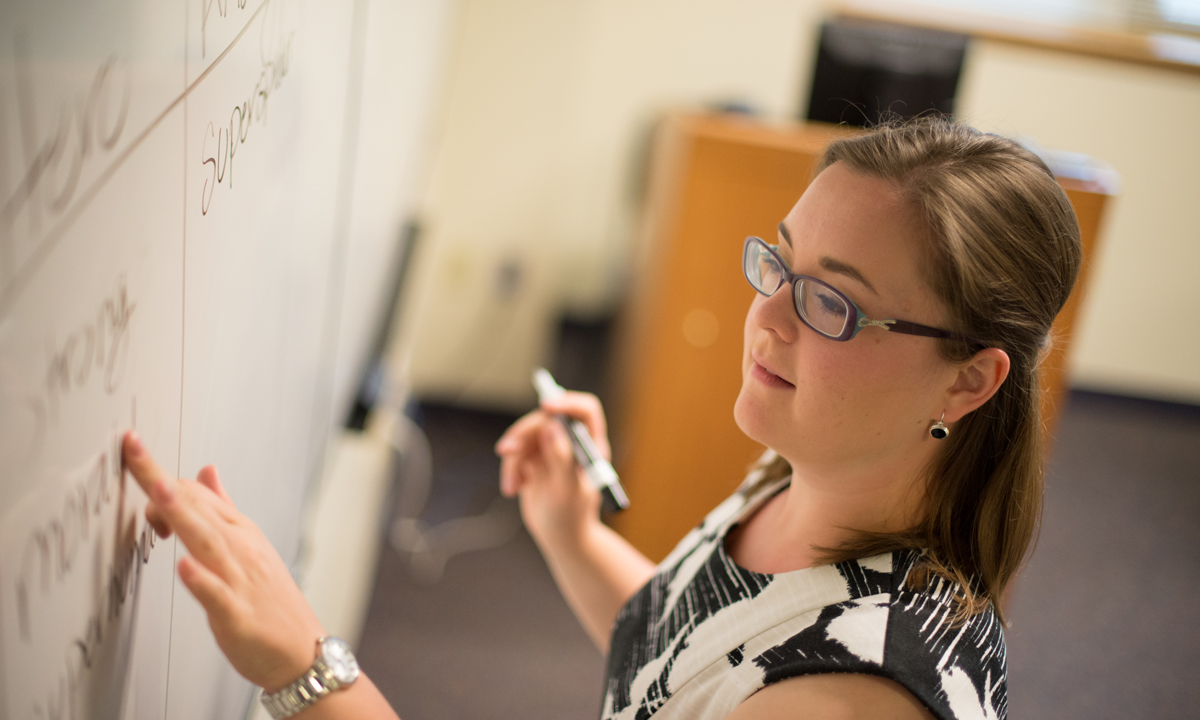Best of both worlds
Education
SUMMARY: A Fulbright grant gives Kelsey Nestel ('12,'14M) a chance to develop the perfect balance of teaching methods.

A girl from Minnesota heads east pursuing her dreams of being a teacher educated at one of the best teaching colleges on the East Coast--James Madison University. Days from graduating with a Master of Arts in Teaching, she is notified that she has been selected from hundreds of applicants for a prestigious Fulbright Scholarship, which will allow her to spend the next year teaching English in South Korea.
The narrative of Kelsey Nestel's Madison Experience reads like the script of a "dream-come-true" movie. But there's no magic wand in the details—just discipline, focus and a concerted effort to achieve her goals.
'JMU is very student centered. ... I want to see where I can integrate that philosophy in my teaching, helping students think in new and different ways.'
Why Madison? Why Fulbright?
"Teaching was always my interest," says Nestel, "and JMU's program lets students experience teaching in many different classrooms and levels." Her own student-teaching experiences have run the gamut from honors students to high-risk English language learners. "There's room for growth and development as a teacher with each student population you work with," she says.
A multicultural education course taught by Dr. Edward James Brantmeier, who coordinates Fulbright opportunities for JMU faculty, provided the catalyst for her pursuit of a Fulbright Scholarship. Fulbright grants provide full support to study, research, and/or teach English abroad. Fulbrighters live and work with the people of the host country, sharing daily experiences. It's the pinnacle of cultural exchange—a rich opportunity to gain an understanding of others' viewpoints and beliefs.
Laying the groundwork
Nestel was most attracted to opportunities in East Asia, specifically South Korea, where the cultural emphasis on education is well known. "Korea has such a commitment to education, and I wanted to experience that commitment. The Fulbright English Teaching Assistantship in South Korea provides an intensive language instruction period and then methods instruction, something I was particularly interested in with my teaching background," she says.
'Candidates help to advance the Fulbright aim of promoting mutual understanding among nations through engagement in the host community.'—Fulbright U.S. Student Program website
"When I decided to pursue a Fulbright, I went to JMU's international programs office and asked, 'How do I work with international students?'"
As a result, Nestel volunteered at the JMU International Study Center, a preparation facility for international students. "My interactions with Chinese, Japanese, Korean and Vietnamese students through my work with the ISC reinforced my decision to concentrate on Fulbright opportunities in East Asia."
She also worked with the Career Development Academy at JMU, helping immigrant adults in the community to develop English language skills to further their professional opportunities.
Her efforts paid off. In spite of stiff competition for Fulbright grants—recent statistics for the East Asia region reveal that only 1 in 4 applicants receive an award—Nestel earned a scholarship for South Korea.

Blending different approaches
What part of her Madison Experience will she take abroad? "JMU is very student centered. The emphasis is on students creating meaning on their own, not just writing down notes as an instructor talks at the head of the classroom. I want to see where I can integrate that philosophy in my teaching, helping students think in new and different ways."
'I want my students to know that I care, and I am committed to getting them where they need to go. I want to bring out their best.'
As a Fulbrighter in South Korea, she expects to reap the best of both worlds. "It's important to realize that our approach in the U.S. is not the "be-all, end-all" in education methodology. There are benefits from other systems of education. Traditionally we've seen great strengths in math and science in Asian countries. On the other hand, Western education has been very good at developing persons who think outside the box. U.S. students typically outscore others in problem solving and critical thinking. I am looking forward to finding ways to use elements from both approaches to provide the best education for students so they will be prepared for the changing needs and markets of our global society."
She leaves July 4 for Seoul, South Korea, and her new life. And, there's one final bonus to her assignment. "It's a home stay, which offers a full cultural integration," she says. "I'm determined to learn how to cook Korean food!"
